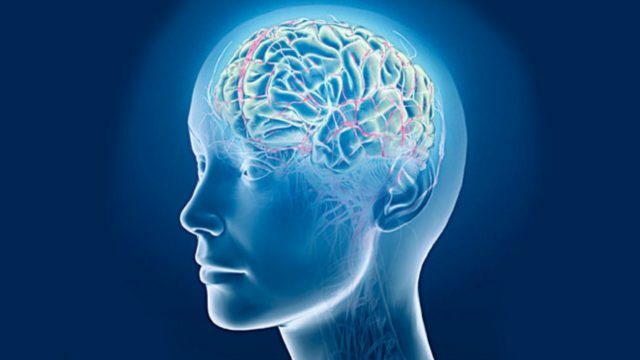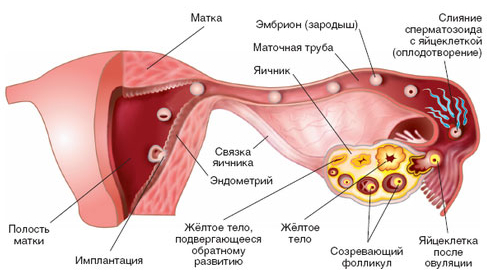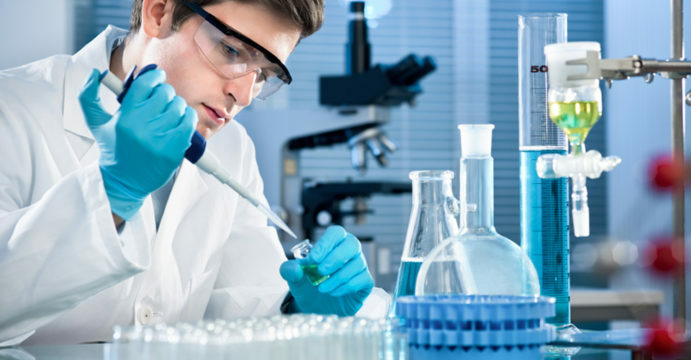Endocrine regulation of the menstrual cycle is the basis for the proper functioning of the reproductive system of women. The corresponding amount of sex hormones in the blood of the fair sex directly affects the development of follicles and ripening of eggs. In the absence of joint work of the pituitary gland, ovaries and endometrium, pregnancy will not occur.
The main "players" in this whole process are the pituitary hormones:
- follicle-stimulating( FSH),
- luteinizing( LH).
They provide the adequate work of the ovaries and cause them to produce more estrogens and progesterone depending on the day of the menstrual cycle. The amount of these hormones in the woman's blood directly depends on the activity of the pituitary gland. In this regard, many ladies are interested in their doctors, what ratio of FSH and LH should be normal on different day of the cycle.
Functions and mechanism of action

The pituitary gland is a small gland. In the hierarchy of the endocrine system, it occupies the second place after the hypothalamus and performs the main regulatory function over all peripheral organs. It synthesizes tropic hormones, which accordingly increase the functional activity of other glands.
For the reproductive function of women the following biologically active substances remain the most important:
- estrogens,
- progesterone,
- FSG,
- LG.
The last two are synthesized in the pituitary gland. They affect the changes in the endometrium in the uterus, depending on the day of the menstrual cycle. Estrogens increase in the blood under the influence of FSH, and progesterone, respectively, under the influence of LH.Regulation takes place according to the type of negative feedback. The less sex hormones in the blood, the more tropic and vice versa.
Menstrual cycle
Normally, the ratio of LH and FSH in an adult woman should be 1.5-2 to 1. In the body of girls who have not yet begun menstruation, the pituitary synthesizes these substances in equal amounts( 1: 1).With the development of the body and internal genital organs, a change in the mechanism of regulation occurs. Approximately in 11-14 years begins the period of puberty and establishes the dependence of the formation of follicles in the ovaries from the day of the menstrual cycle, which normally lasts for 28 days. Fluctuations of up to several days are considered physiological, however, care must be taken not to cause too much delay. This may indicate the presence of organic and functional diseases of the woman's body.

The cycle itself is divided into 2 phases:
- follicular( 1-14 days),
- luteal( 15-28 days).
The name makes it clear which hormone is when it increases in the blood. The most suitable day for conception and planning of subsequent pregnancy is the 14-15th with the usual duration of menstruation.
Laboratory indicators
The norm of biologically active substances in a woman's blood is different, depending on the day of the cycle and phase.
LG:
- follicular period - 1,67-15,0 mU / ml,
- directly ovulation - 22,0-57,0 mU / ml,
- luteal phase - 0,6-16,0 mU / ml.
FSH:
- follicular period - 1,3-10,0 mU / ml,
- directly ovulation - 6.1-17.1 mU / ml,
- luteal period - 1.08-9.1 mU / ml.

At the moment, a laboratory analysis of the functional activity of the ovaries and the pituitary gland remains the best way to determine the presence of a diverse pathology and the correct functioning of the reproductive system. On this depends the process of planning and development of pregnancy, which is especially important for parents who want to have a child.
Deviations from the norm FSG
This biologically active substance prevails in the body of the fair sex in the follicular( first) phase of the menstrual cycle. Thanks to him, the egg ripens and it prepares to go outside( ovulation).For pregnancy to occur, the level of the substance must necessarily be normal. Otherwise, the follicle does not rupture, and the sex cell can not leave the ovary. Fertilization can not be accomplished.
Causes of elevated FSH levels in the blood:
- Physiological. At the age of 40-45 years, there may be an increase in the indices of this substance in the woman's body. This is due to the onset of menopause, and one should treat this situation as a variant of the norm. Values can reach 40 mU / ml. About pregnancy in this period, it's too late to think.
- Ovarian depletion syndrome. With it, the levels of FSH and LH can increase fivefold relative to adequate values. At the same time, the amount of estrogen and progesterone drops sharply, which also makes pregnancy impossible. This situation requires medical treatment.
- Another pathology. Here you can talk about radiation exposure, chemical effects, chronic stress, beriberi and genetic predisposition.
In any case, an accurate diagnosis of the cause of abnormalities in laboratory indicators should be performed by a qualified doctor.
The increase in LH levels is due to the same factors as above.
What to do in case of pathology?

It should be understood that planning for pregnancy is a very important and responsible step in the life of all parents. It should be approached as seriously as possible and try to keep your body and body in good health. Of course, sometimes it is impossible to know when the desired conception will come. However, modern science offers a lot of opportunities and ways to plan the birth of a baby.
Couples who can not become pregnant for a long time must undergo an appropriate examination with a gynecologist and an endocrinologist. They basically send both partners for the test. In the blood of women in the first place pay attention to the following hormones:
- LG,
- FG,
- estrogens,
- progesterone,
- T3 and T4,
- TTG.
It is important to know about the features of taking tests, depending on what day of menstruation:
- FSH and LH are given for 3-5 days,
- progesterone and estrogens for 19-21 days.
If serious deviations are identified, measures must be taken to eliminate them. In general, we are talking about hormone replacement therapy, which is aimed at normalizing pathologically altered indicators. In any case, therapy should be carried out by a specialist under appropriate conditions. The main thing - the health of patients.



